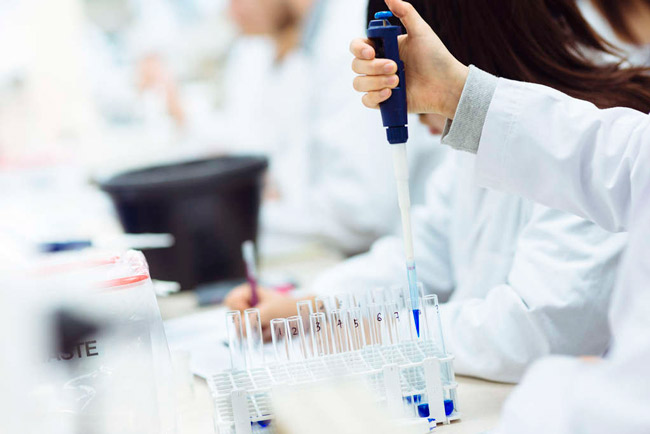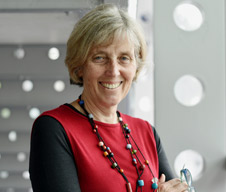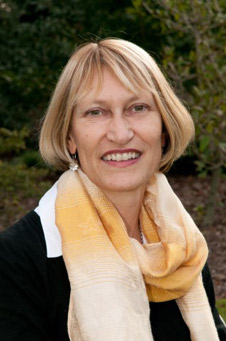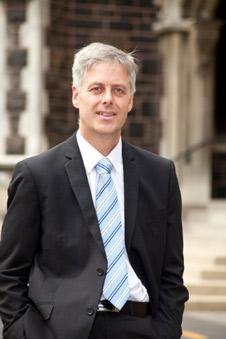Thursday 10 May 2018 10:03pm

Otago academics say the University's Māori consultation processes are designed to help researchers consider the specific cultural implications of any proposed study.
Several Otago academics have stepped forward in strong opposition to suggestions that the Treaty of Waitangi has no place in scientific endeavour, and that the University of Otago’s Māori consultation processes are flawed.
The debate was sparked by a recent opinion piece in Stuff - The Treaty has no place in scientific endeavour in which Science Columnist Bob Brockie criticised the Royal Society of New Zealand Te Apārangi for placing the Treaty of Waitangi centrally within its activities and integrating humanities into its portfolio.
The piece also claimed that the University of Otago must consult Ngāi Tahu about "all areas of research" before scholars undertake their work.

Professor Margreet Vissers.
In response to this, Professor Margreet Vissers, the Associate Dean (Research) at Otago’s Christchurch campus, wrote her own opinion piece: In defence of science and our Treaty: a reply to Bob Brockie.
In this piece she rejects Dr Brockie’s concerns.
“Consideration of the Treaty of Waitangi has added depth and breadth to our scientific endeavours,” she writes. “The research institutes in New Zealand, including the Universities and Government Crown Research Institutes, have made considerable progress in adapting their processes to ensure more inclusive representation for Māori as Treaty partners, and to recognise the voices of other minority groups.
“In contrast with Dr Brockie's view that Ngai Tahu somehow has vetting rights or imposes "heavy-armed rules on scientists", or that science researchers are somehow compelled by the University to take part in an "inquisition", the process of Māori consultation is a supportive discussion between researchers and a Māori Research Advisor to consider the specific cultural implications of any proposed study.
“Over the past decade or so, this process has been extremely helpful for staff. Consultation has expanded the scope of many research projects, including studies in education, mental health, cancer and cardiovascular disease.”
She writes that as an academic at Otago she is proud of the progress made in recognition of the Treaty of Waitangi and very happy for the University to continue to promote and advance the interests of Māori.
“This is not being undertaken for political expediency, but to make a real difference to the experience of Māori students, staff and the New Zealand people. I note with pleasure and admiration the increasing number of confident and highly competent Māori graduates, and look forward to welcoming them into our research workforce.”

Professor Vicky Cameron.
Another Christchurch academic, the Deputy Dean University’s Christchurch campus Professor Vicky Cameron, added her defence of Otago’s Iwi research consultation in a radio interview on NewstalkZB.
In this interview she said most universities and crown research institutes are expected to talk to Māori representatives about opportunities they could have to improve their research by being more inclusive of Māori.
She described Otago’s Māori consultation processes, which involve researchers completing an online form with a short, lay summary of their intended work. If there it is considered there is not particular relevance to Māori in that research they don’t have to consult.
However, she said, for many research – health research in particular – topics are highly relative to Māori.
Rather than being a negative, she says this is positive.
“It’s a consultation, there is no requirement to action anything that comes from that consultation, it’s often ways to perhaps improve the inclusiveness of your research which is helpful rather than actually mandating that you need to do X,Y and Z.”
“All this consultation is doing, is its expanding people’s views of how they could perform their research. For example, if you re-worded your letter to participants, you might get more engagement from Māori in your research study, which would actually improve your study.”
She said Dr Brockie’s opinion piece is based on a lack of information.
“The Treaty of Waitangi is a partnership between Māori and the crown, which means we should be doing research in partnership with Māori.”

Professor Richard Blaikie.
Finally, Deputy Vice-Chancellor (Research and Enterprise) Professor Richard Blaikie submitted his own opinion piece to the Royal Society Te Apārangi - On science and stamp collecting.
In this piece he shared his perspectives on what social science and the humanities can bring to the physical sciences and the role of te ao Māori in research in Aotearoa.
He said he feels a “strong sense of historical déjà vu about this whole debate”.
“We have always had the urge within the sciences and between disciplines, mostly healthy and good humoured, to try and determine hierarchies of knowledge, principles, methodologies and values upon which the traditions of our different areas of enquiry are based,” he writes. “As a physicist, it might be very easy for me to fall back on the erstwhile and much-quoted assessment from our most famous scientist, Ernest Rutherford, that physics was the only true science, with everything else being merely stamp collecting.
“But to what point and what end? Perhaps if I felt insecure in myself or the role of physics in society, I might like to elevate my importance by degrading the hard and careful work of botanists, geologists, zoologists, chemists or psychologists to routine data collection and cataloguing activities. Or I might identify the role of mathematics to one of making the tools to allow me to expound my wonderful theories. Or that engineering was merely a handle-cranking exercise of turning my brilliance into products and technologies that people find useful.
“Rather, experience and evidence shows me that we are much better working together in research and its application than being fragmented and hierarchical. Smarter people than I am know this, and have known this for a very long time.”
He said the opportunity is here now, through the broad-minded and inclusive approaches of our academies, communities and universities to embrace the multiple cultures of our time and our place in Aotearoa to advance knowledge and understanding in all areas.
“As a physicist I fully endorse this approach and implore others to do the same – scientists, stamp collectors, Buddhist monks, rangatahi, kuia, kaumātua, artists, builders, accountants, teachers – we all have a critical role to play in exploring, discovering and sharing the knowledge that we need to survive and thrive in a challenging world.”
Office of Māori Development Director Tuari Potiki says the University’s rebuttal was heartening.
“It’s great to see such a swift and strong response to these sorts of outdated comments,” Mr Potiki says.
“We want to ensure the University continues to work towards incorporating the Māori Strategic Framework and responses like these show there is a firm commitment to helping mana whenua, researchers and students all benefit from this partnership.”
